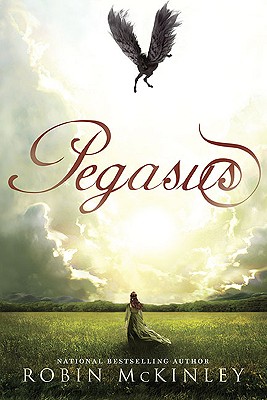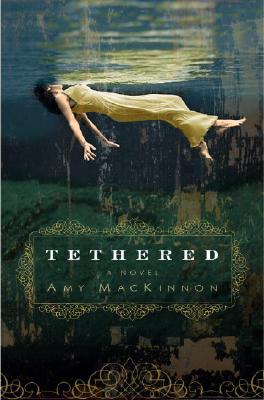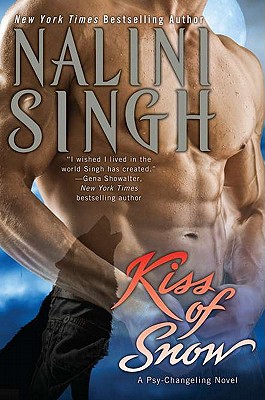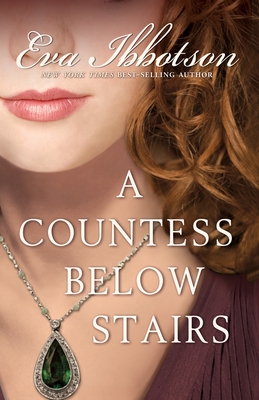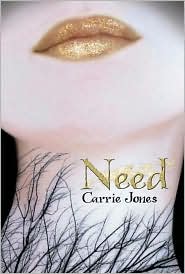It wouldn't be honest to say Robin McKinley's Pegasus was a fast read for me. In fact, it took me two to three times longer than I'd anticipated.
I can't say it was an easy read, either, as some parts were . . . well, not exactly difficult, but more like tedious.
I can't even simply say I enjoyed the book. I wouldn't say that. Because while the writing was experienced, sometimes extremely evocative, and somehow ripe, there were also places where the writing killed off the story, which is about a young girl (starting out with a genuinely childish twelve-year old, and coming in one of the many "Hurry up and flounder" moves, to fifteen-nearly-sixteen/adulthood) being magically (spirtually? mentally? unusually?) bound to her royal Pegasi counterpart, and what the surprising differences to historical bindings this one poses. Of course there's a bad guy who hates it, a thoroughly bad bad guy we all want to smother in his own supercilious robes, and there are wise monarchs, loving maternal figures, and the much-lauded Third-party-OR-ARE-THEY?!?! threats from great Pegasi-and-human-eating beasts.
There, in fact, 404 pages of these things. Or rather, there are 300 pages leading up to these things, 79 pages of the actual STUFF, and then 20 pages of WHOA, CRAP!, followed by 5 blunt pages of me getting very, very angry, because I--a hardcore devourer of books--have just toiled for at least three-fourths of this book to get to the last page to find . . . nothing.
You remember the Looney Toons wherein Wile E. Coyote would be chasing the Road Runner around, hellbent on (I . . . don't actually know. Did he want to eat him? Take back his pride? Square Dance?) catching that bird when suddenly he finds himself three feet out over the edge of some cliff-edge he'd have sworn hadn't been there two seconds ago? You see it before he does, but then he looks down, looks back up at you, and for the two or three moments he has before he waves, gulps, and begins to fall, you both know the very worst of what's about to happen.
That's page 404 of Pegasus. It's not that I don't like books that leave off in the middle of the action, with no real sense of having accomplished anything--wait, no, that's exactly what it is. I know I'm always harping about book that could have been tightened up, I guess that's just my style, but if a book takes 400-some pages to just get to the big UH-OH, and then either plans on letting you hang, or means to make you wait for a sequel, my reaction is going to be something to the tune of, WTHades, people!? Cut out 200 pages, put in 200 OTHERS to finish out the frakking story, and let's get a real book out of these pulped trees, already!*
I didn't like the book; I liked the story, but I'm not sure I liked it enough to tip the scales. If you're cool with unnecessarily dense run-around, however well-done, you could borrow this from the library, but otherwise, I advise you BYPASS it.
*I have now looked around to find Pegasus does indeed have an intended sequel, which is good for those who find the ending enough of a cliff-hanger to wait for it, but still doesn't really do anything to change my opinion--so I guess it's good it's purported McKinley herself admits readers will hate her for how the book ends, and she's got a good sense of humor about it.
